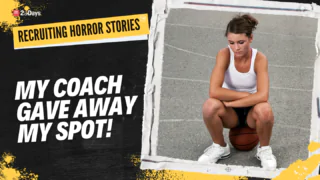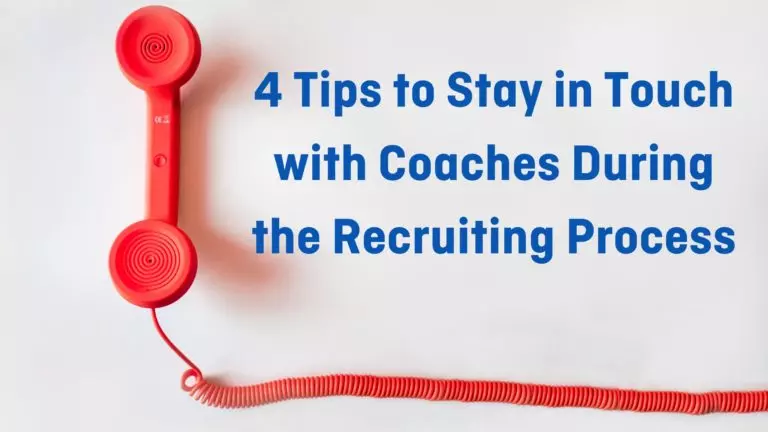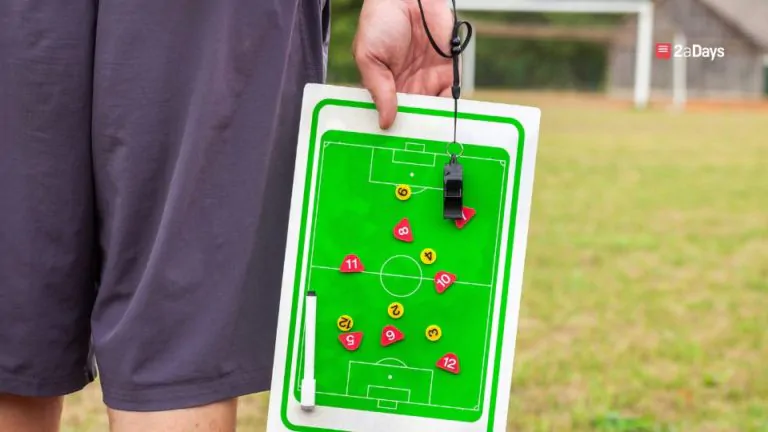College athletes are a very select group of people. Take basketball, for instance: there are about 1,060 schools with basketball teams amongst all three NCAA divisions. With an average of 12 players per team and five new first-year students per year, this means that less than .15% of high school graduates will play college basketball!
This is just one example, but the logic carries over to all college sports. Playing a college sport is a privilege, and only a select group of people get to participate. Remember this during your recruiting process. As Jake Ross Jr., head coach of the University of Michigan baseball team, said, “Don't limit yourself to one school; there are a lot of places to play, and there is nothing wrong with DII, DIII, NAIA, etc.”
For this reason, it is your responsibility as a recruit to keep an open mind when interacting with any college coach during your recruiting process, because you never know what might happen. It is also important to remember that a lot can change quickly as a recruit, and you want to keep as many doors open as possible to ensure you play your sport(s) in college.
Related: Understanding Which Division/League to Target
Jess' Soccer Recruiting Story: Ignoring the DIII Coaches
Jess was a high school soccer star from an upper-class family and an honors student boasting 3.8 GPA. By the middle of her senior season, she had offers from three DIII schools in the northeast and was being recruited by two DII schools. Her goal was to play DII soccer close to home so that her parents could come to most of her games.
Jess' dream school also needed to have elite academics, so that she could pursue a degree in Biology while playing soccer. At this point, only one of the DII schools matched that criteria, while five of her DIII offers matched. The DII school that she was most interested in wanted to wait until the end of her senior season before making an offer. She liked the coach at this school and felt it was the perfect fit.
In her excitement, she rejected six DIII schools that matched her criteria, because she felt like they were below her talent level. When these schools contacted her, she simply didn't respond. The three remaining schools that she had offers from were schools that she kept in consideration because of their academic prestige. Even though the coaches from these schools had offered her a spot on the team, she hadn't given them her full respect because she doesn't want to lead them on if she was not entirely sold on playing for them.
Related: 4 Reasons Athletes Choose Division III
The Injury
As Jess' season progressed, she was playing well, but got injured in practice with only four games left in the regular season. She had a partially torn Achilles tendon. She didn't have to get surgery, but also wasn't able to play any of the remaining games. Not only did she have to deal with the disappointment of not being able to play the rest of her senior season, but had to also contact the college coach from her desired DII school and break the bad news.
After a long conversation with the coach, she found out they were not able to offer her a spot on the team because they didn't get to see her play enough to commit. Jess felt betrayed and like this school had led her on. Desperate to find a school that would let her play soccer, she contacted all three of the schools that had offered her and explained the situation. For the most part, they told her that her offers were still available.
Two of the schools told her that because they did not think she would be committing to their schools, they had promised the other recruits more playing time during their freshman year. This meant that Jess would have to work harder than them to earn time. The last of the DIII schools was the one Jess least wanted to attend, but they promised her a starting spot her freshman year. It was going to be a tough decision.
Related: Get a Kick Out of Former UNC Soccer Player & Current NWSL Athlete's Recruiting & Injury Advice
The Decision
Jess ultimately decided to commit to the DIII school with the best academics, but where she was not guaranteed playing time. Jess felt like her recruiting process did not go as planned, and was, at times, entirely out of her control.
Jess's story may seem like unlikely, but you would be surprised how common it is for coaches to change their minds or even rescind offers.
Related: The Broken Promise from College Coaches
Recruiting is Often Uncontrollable
Life in sports sometimes comes at you fast. One day you can be playing the best you have ever played, and then the next day, you can get injured and be done for the season. Making it seem like you are equally interested in all the schools that are recruiting you will help ensure that if you are injured, those coaches will treat you with respect and may even offer you a spot despite not seeing you play as much as they would have liked.
Academics Should Always be a Priority
Jess' great GPA allowed her to be recruited by schools at all academic levels and ensure that she attended college regardless of soccer. She was also privileged to have parents who could afford her college education, which made DIII more realistic. It was important for her to remember that one of the main goals of being recruited is to have the opportunity to earn a college education. The more coaches you reject, the more likely it is to lose scholarship money or even the chance to go to college.
Related: What Makes Division III Scholarships Different
You Should Always Keep Your Options Open
Jess rejected many schools because they didn't meet her regional, academic, or athletic standards. She was lucky to have a spot on the team at a school with excellent academics, but not all recruits are this fortunate. Jess's story shows that if you are open to meeting with all college coaches that contact you and treat them all the same, then you decrease the chances of some uncontrollable event (like an injury) affecting your recruiting process.
Related: Rate your Coaches, Facilities and Campus Visits
All in all, during the recruiting process, don't turn away a coach for any insignificant reason. Keep your options open and allow yourself the most opportunities to find the perfect school for you.
Have an idea for a story or a question you need answered? Want to set up an interview with us? Email us at [email protected]
* Originally published on January 25, 2022, by Jordan Cole







